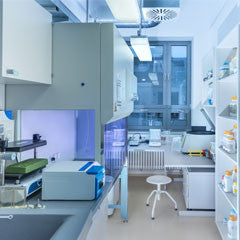
Program 12: Advanced Diploma in Pharma Biotechnology
Pharma Biotechnology has detailed emphasis on fundamentals as well as advanced methodologies. The program involves main aspects of core subjects of pharmaceutical microbiology, enzyme biotechnology, recombinant DNA technology, immunological techniques which becomes imperative as we step into corporate biotech world.
Course Content:
The Advanced Diploma in Pharma Biotechnology is divided into 7 modules which is detailed as below:
MODULE 1: PHARMACEUTICAL MICROBIOLOGY
- Introduction to Microbiology Laboratory
- Isolation of Microorganisms
- Pure culture preparation and preservation techniques
- Genus level identification of unknown microorganisms
- Culture characteristic studies
- Staining techniques
- Simple staining technique
- Differential staining technique
- Viability staining technique for bacteria
- Biochemical studies
- Differentiation of enteric microorganisms
- Extracelluar enzymatic activities of microorganisms
- Detection of Coli forms using membrane filtration method
- Isolation and identification of fungi form soil sample
- Isolation and identification of Actinomycetes and Mycoplasma
- Siderophore detection
- Phage isolation
- Bacteriological examination of water by multiple tube fermentation test (MPN test)
- Production and detection of Aflatoxin
- Mutational studies and Replica plating technique
- Bacterial Conjugation
- Biotransformation technique
- Biodegradation technique
- Production of an Antibiotic (Aerobic fermentation)
- Microbiological assay of antibiotics by agar diffusion method
- Microbiological assay of antibiotics by Turbidimetric method
- Ames test for detecting potential carcinogens
- Detection of nicotinic acid by bioassay
- Detection of antibiotics by Bioautography technique
- Determination of MIC of antibacterial substances (phenol)
- Heparin bio-assay
- Screening Methods for bioactive metabolites
- Microbiological analysis of vitamins
MODULE 2: ENZYME BIOTECHNOLOGY
- Sterilization techniques
- Isolation of microorganisms from natural sources for enzyme production
- Pure culture preparation and preservation techniques
- Genus level identification of unknown microorganisms
- Staining techniques
- Biochemical studies
- Screening for production of enzymes
- Fermentation technique
- Solid state fermentation technique
- Submerged fermentation techniques
- Down stream processes
- Crude extraction of enzyme
- Purification of crude enzyme
- Precipitation of enzymes (salt./solvent)
- Dialysis
- Ion exchange chromatography
- Gel filtration chromatography
- Characterization of purified enzyme
- Enzyme assay
-
- Total protein estimation
- Bradford method
- Biuret method
- Lowry’s method
- 280 methods
- Concept of specific activity
- Enzyme kinetics
- Effect of pH
- effect of Temperature
- Effect of Substrate conc.
- Effect of Activator
- Effect of Inhibitor
- Time course of the reaction
- The concept of Km and Vamp
- Demonstration of substrate catalyst complex
- SDS PAGE
- Staining of proteins
- CBB staining
- Silver staining
- Drying gels
- Calibration of proteins and molecular weight determination
- Native PAGE
- Zymography
- Immobilization of Enzymes and formulation
- Intellectual property rights
MODULE 3: RECOMBINANT DNA TECHNOLOGY
Part I:
Preparation of plant DNA by SDS method and c-TAB method
- Preparation of RNA
- Preparation of animal DNA
- Preparation of Plasmid DNA
- Preparation of genomic DNA from prokaryotes
- Quantitative and Qualitative analysis of DNA
- Characterization of bacterial strains
- Characterization of nutritional mutants
- Characterization of antibiotic resistance
- Characterization of UV sensitive mutants
Part II:
- Tm of DNA-Melting point of DNA
- Restriction mapping
- Preparation of competent coli cells (ultra competent)
- Expression of cloned genes in coli
- Gene regulation
- PAGE and AGE for DNA
- Protein structure analysis
- Biodiversity and Biomass analysis
- Recovery of DNA from Agarose.
- Detection of DNA
- Silver staining
Part III:
- Southern Blotting
- Gene expression and identification by western blotting
- Primer design and vector construction
- PCR Techniques
- DNA Finger printing (by RAPD)
- Protein finger printing/protein profiling
MODULE 4: IMMUNOLOGICAL TECHNIQUES
- Introduction to immunology
- Raising polyclonal antibody in laboratory animal
- Selection of animal for antibody production
- Preparation of antigen
- Immunization of antigen
- Collection of Blood from immunized animal
- Serum separation by centrifugation
- Separation of serum by native PAGE
- Erythrocyte Sedimentation Rate (ESR)
- Purification of IgG from serum sample
- Salt precipitation test
- Dialysis
- Ion exchange chromatography
- Spectrophotometric estimation
- Quantitative estimation of proteins
- SDS PAGE
- Separation methods
- Separation of lymphocytes
- Serum electrophoresis for fractionization
- Gel diffusion methods
- Ouchterlony double diffusion
- Single radial imuno diffusion
- Immunoelectrophorosis
- Countercurrent Immunoelectrophorosis
- Gel diffusion methods
- Rocket Immunoelectrophorosis
- Agglutination methods
- Blood grouping and Rh typing
- Fibril agglutination test (Widal test)
- VDRL/RPR test
- Hbs Ag test
- Immunochemistry methods
- ELISA
- Pregnancy test
- Estimations:
- Estimation of Blood hemoglobin using Haemometer
- Prothrombin time & Partial thromboplastin time determination
- Anti A1 lectin test
- Direct & indirect Antiglobulin Test (Coomb’s test)
- Packed Cell Volume (PCV)
- Measurement of serum albumin
- Separation of serum amino acids by paper chromatography.
- Blood smear preparation, Staining & visualization of blood cells.
- Methaemoglobin reduction test
- Coagulation method fibrinogen
MODULE5: PHYTOCHEMICAL ANALYSIS
Part I:
- Collection of plant material
- Preparation of plant material
- Isolation of secondary metabolites form plant samples using soxlet apparatus
- Preliminary phytochemical analysis
- Test for alkaloids
- Test for phenolics
- Test for saponins
- Test for triterpenes
- Test for steroids
- Tests for tannins
- Test for flavanoids
- Test for lactones
- Test for diterpenes
- Test for glycosides
- Test for volatile oils
- Determination of total protein
- Determination of total carbohydrate
- Determination of total lipids
- Test anti-diabetic activity
- Test for anti-inflammatory activity
Part II:
- Antibacterial studies
- Antifungal studies
Part III:
- Identification of the compound responsible for antimicrobial activity
- Effect of phytochemicals on the biofertilizers
- Paper chromatography
- Thin layer chromatography
- Gel filtration chromatography
MODULE 6: PROJECT
MODULE 7: INSTRUMENTATION
- HPLC
- GC
- AAS
- PCR
Who should join?
If you are a biotechnology enthusiast, an MSc/MTech/ME in Life Sciences, who are looking to strengthen concepts and build on hands-on skills, which would help you grab the right job, this is the right place to enrol.
Course Details:
The module consists of 150 days classroom training with our expert faculty followed by 30 days of practical exposure with our service provider. Also avail our e-learner facility.
Total Duration: 180 days
The classes will be held in Biotecnika Bangalore branch/ Online.
Lab Partner: Azyme labs



